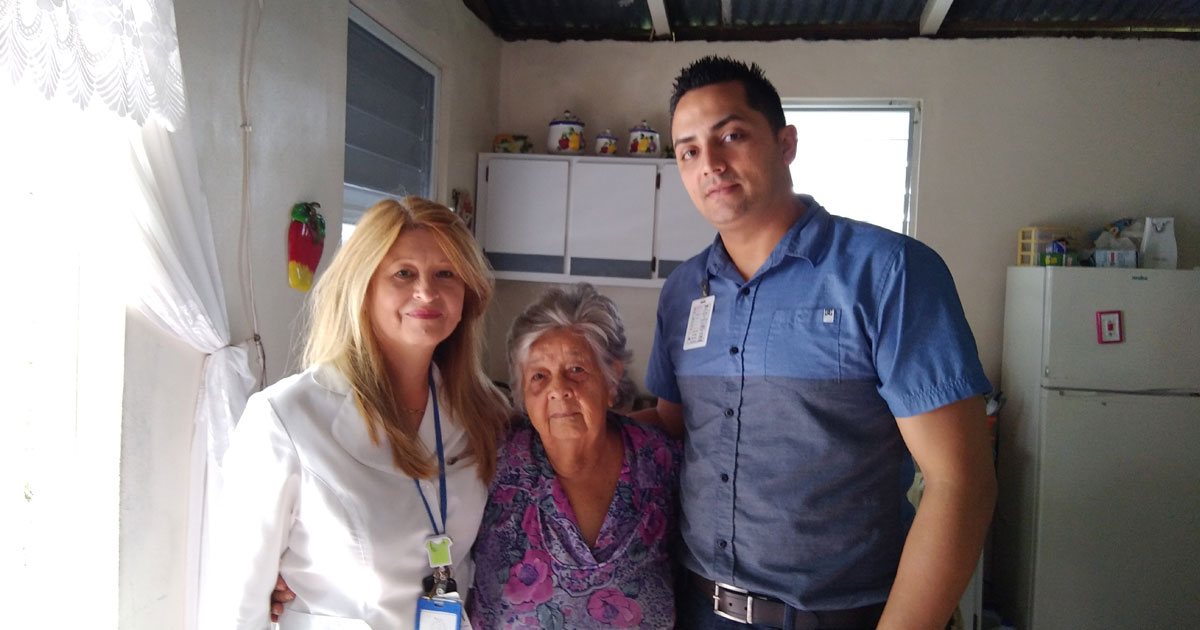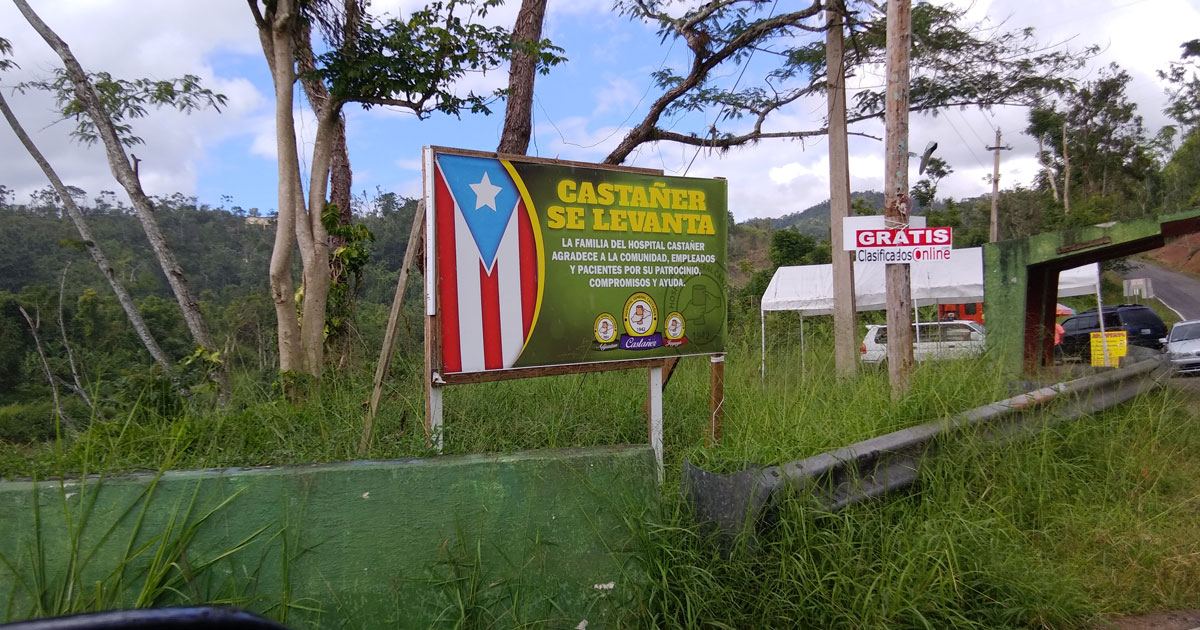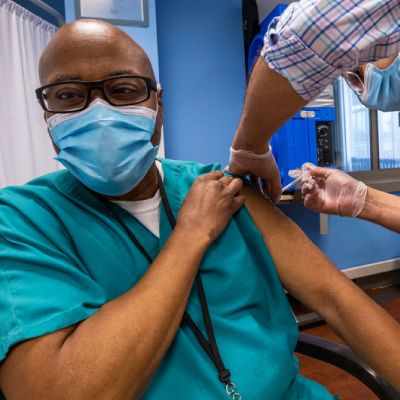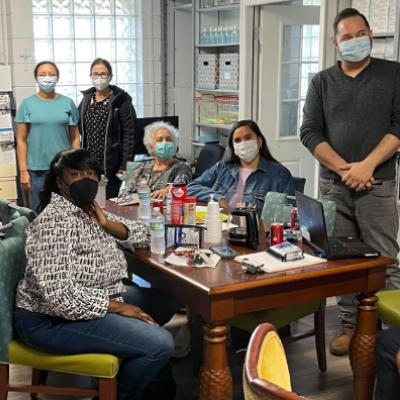- Who We Are
- Clinician Employment
- Publications
- Witness to Witness (W2W)
- El Premio Kugel & Zuroweste a la Justicia en la Salud
- Your Voice Matters: Photovoice Project
Mon, 01/29/2018 | by Claire Hutkins Seda


[Editor’s note: MCN’s Deliana Garcia, Director of International Projects and Emerging Issues, headed to Puerto Rico last week (with a generator in hand) to visit our program partners at Hospital General Castañer. She sent us this update from the field. For more on health center funding, read NACHC’s updates at www.nachc.org. To support our ongoing work in Puerto Rico, please make a donation to MCN’s Puerto Rico fund.]
Green is back with a vengeance in Puerto Rico. A testament to the power of the sun and the rain to heal – plants at least. On closer inspection, you can see that all of the new growth is at the end of branches or emerging from the trunk closer to the root. The segments below the green have been stripped of their bark and old fronds. Aid has reached much of the island that could be reached. But everyone I spoke with told me that the only reason their area was functioning was that the community came together to lift themselves up. They cleared the roads, removed debris, and began to check on the more fragile of their neighbors. The cities and towns are bustling. But up in the mountains or on the outskirts of the towns and cities many of the residents are entering their fifth month without light, potable water, and a way to communicate with the outside world. The houses in these areas remind of Paul Farmer who speaks of houses that fool the sun but not the rain. There are not enough blue tarps in the world to repair what has happened to Puerto Rico. Those with generators may be lucky enough to have a refrigerator. For those that do not, it is a steady diet of high-sodium canned foods and bread stuff.

Billboard translation: "Castañer rises up: the Castañer hospital family thanks the community, employees and patients for their sponsorship, commitment and help."
What is clear is that no amount of prior planning or previous experience prepared anyone for Hurricane Maria and the fact that it took out all methods of communication – ground lines, cell phones, radio, internet, even satellite phones in some areas didn’t work. Because of the communication collapse there was limited access to money – cash or credit. Without money, there was no food, no water, and no diesel to run the generators. For most, it was a cash-only economy: no checks accepted and no functional credit card machines. Bank machines and credit terminals have slowly returned but imagine weeks without the ability to buy the most basic necessities. And we cannot forget that many people in Puerto Rico are still locked in this reality! Electricity will not reach them for many months, even years, if ever.
What fills me with pride is the incredible work being done by the network of health center grantees, called locally by that lovely term: the 330s. They have organized teams to go out to the farthest regions possible to bring care to the residents that have no way to come into the centers. They hold immunization clinics, take essentials into the community, and work to support bed-ridden patients whose compromised health makes them particularly vulnerable in the current crisis. And the esteem -- really, the love-- in which theses centers are held would bring you to tears. They are the heart of their community and their commitment is palpable. To know that their funding is in jeopardy is unbelievable. A more essential service to these communities would be difficult to imagine. They must be preserved.
Like what you see? Amplify our collective voice with a contribution.
Got some good news to share? Contact us on our social media pages above.
Return to the main blog page or sign up for blog updates here.







